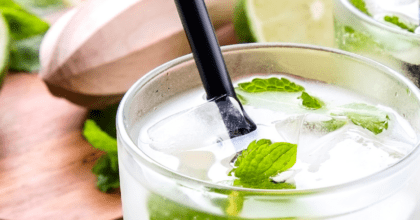Brits' make up bags are a sight for sore eyes
They’re a perfect breeding ground for germs, yet new research from Mintel finds just one in four (28%) British women admit to discarding their make-up, shampoo and shower gel if they smell funny or become discoloured.
While most of us wouldn’t dream of eating a suspect item of food, it seems Brits are decidedly less discerning about their cosmetics. Indeed, whilst consumers are all too used to monitoring use by dates on food products, they are far less aware of issues relating to cosmetics.
” it is not simply a matter of products no longer performing to optimal standards, old make-up can be hazardous to our health. Like food, cosmetics can expire and become dangerous to use. There may be far more lurking at the bottom of your make-up bag than an old dried up mascara. “warns Alexandra Richmond, Senior Beauty Analyst.
“These latest findings highlight a lack of information available on cosmetic sell-by dates. Repeated exposure to bacteria from the mouth affects lip colour cosmetics, while out-of-date mascara and eye pencils can raise the risk of infections. Natural and organic products containing fewer or no preservatives have a shorter shelf-life than conventional products and therefore potentially harbour higher levels of bacteria. ” alexandra adds.
The research highlights that many women struggle with cosmetic use-by dates and the period after opening symbol is fraught with problems. Particularly if a product has been bought on impulse, it may be difficult for a woman to remember when she bought a particular beauty product and she is likely to continue to use it until it runs out or goes off.
The exclusive research also goes on to look at attitudes towards reading cosmetics ingredients. Today, just one in four (25%) women claim to frequently check the ingredients on cosmetics and toiletries they use. Meanwhile, almost half of women (47%) don’t bother to read the ingredients of brands they trust and almost a quarter think there is no need to check ingredients if a product is natural. Reading ingredients is difficult for one in five women owing to the small print or the fact that ingredients are hidden in peel-back labels.
” as the UK’s population continues to age, there is a very real need to make it as easy as possible for all users to be able to read the ingredients if they so wish. ” concludes Alexandra.
Finally, a fifth (19%) of women think about both ingredient origin as well as the impact of their toiletries on the environment. Concern peaks among women with children, which presents opportunities to the babies and children toiletries category.
-
Mintel StoreGet smart fast with our exclusive market research reports, delivering the latest data, innovation, trends and strategic recommendations....View reports
-
Mintel LeapMintel Leap is a revolutionary new AI-powered platform that will transform your research process....Book a demo







































